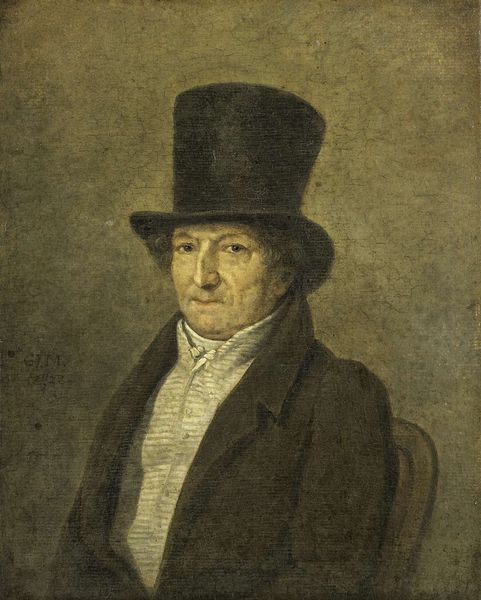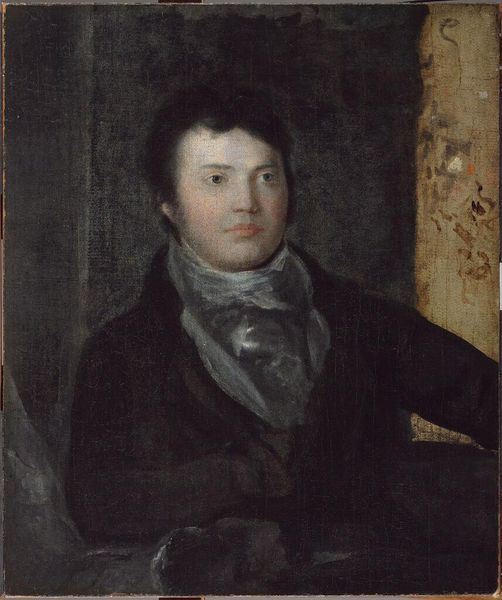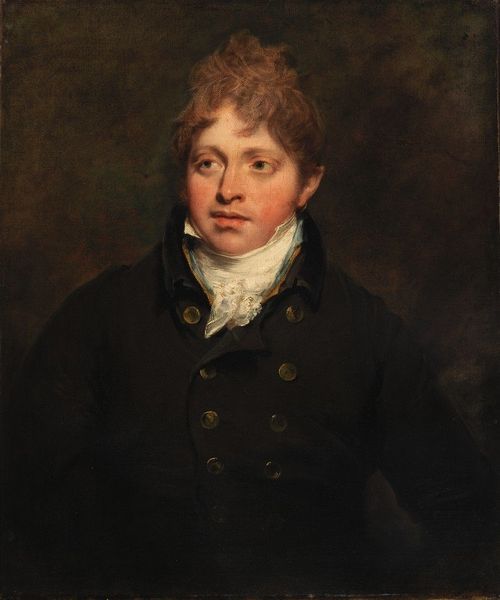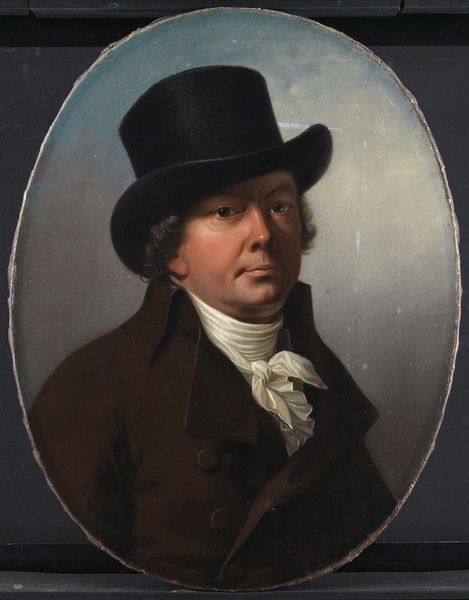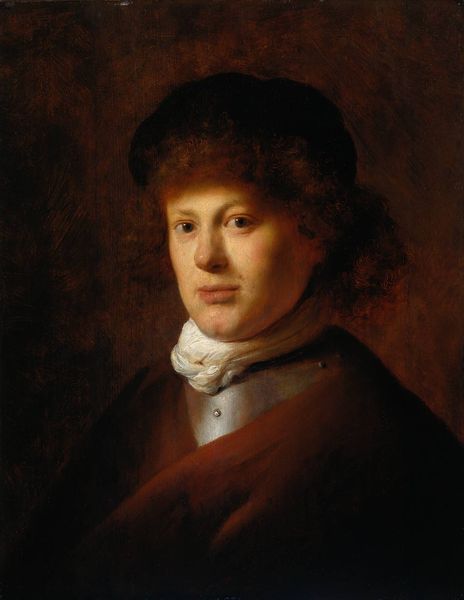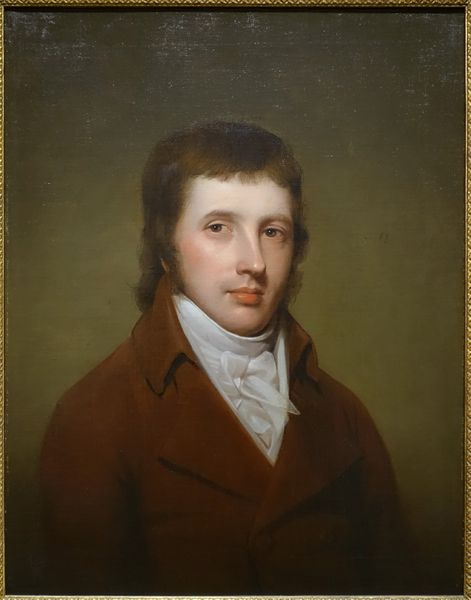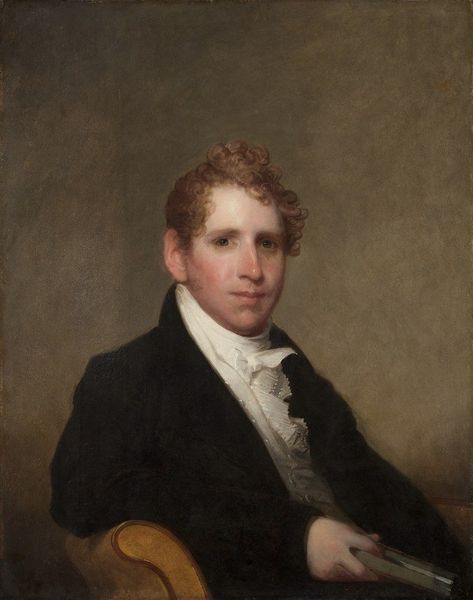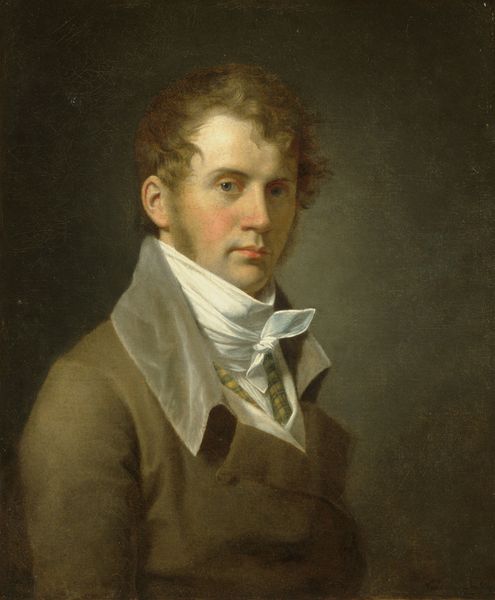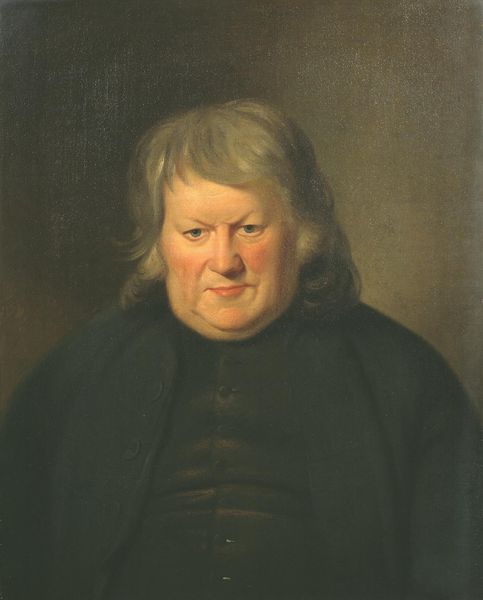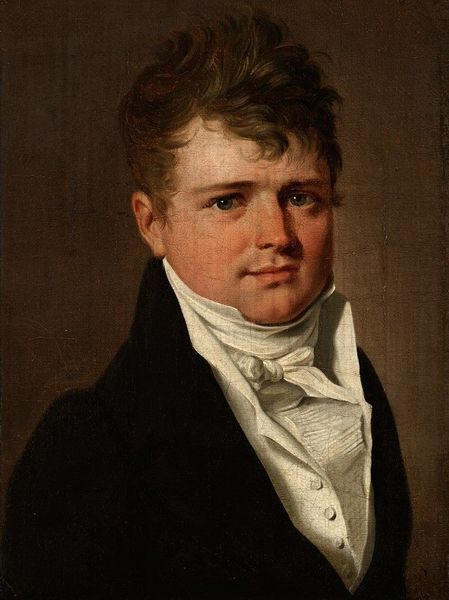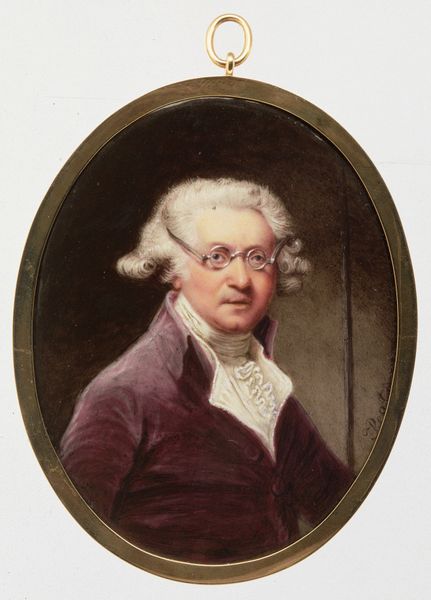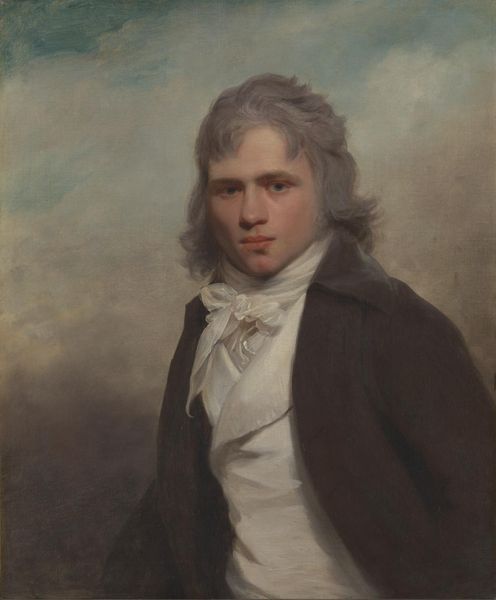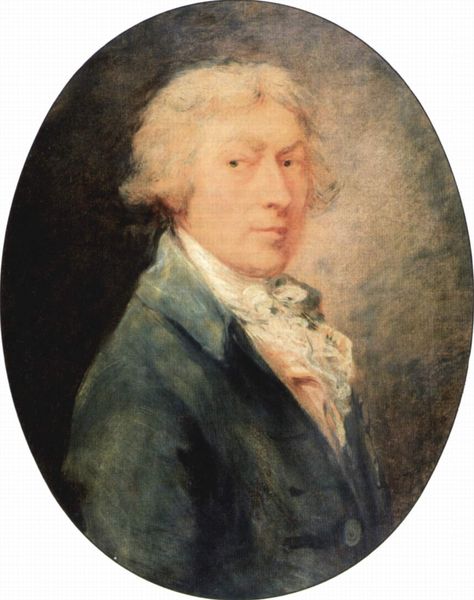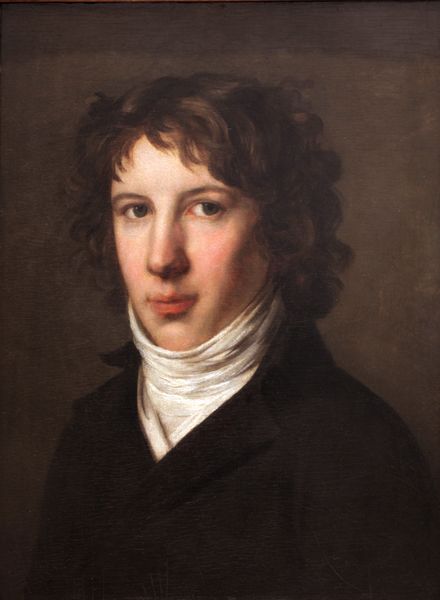
oil-paint
#
portrait
#
self-portrait
#
oil-paint
#
romanticism
Copyright: Public Domain: Artvee
Christoffer Wilhelm Eckersberg painted this self-portrait in the 19th century, a period marked by significant shifts in artistic and social conventions. Eckersberg, who would become known as the father of Danish painting, captures himself with a direct gaze, framed by a soft, dark background. Consider the era's rigid class structures and the burgeoning concept of the individual. Eckersberg presents himself not as an anonymous artisan, but as a person of intellect. Notice how his clothing is simple but elegant; his gaze is self-assured, yet there's a hint of vulnerability in his expression. During this time, artists began to explore personal identity through self-portraiture. Eckersberg’s self-representation contributes to a broader narrative of self-discovery, reflecting on the changing roles and self-perception of artists in society. How does this portrayal challenge or uphold the societal expectations placed upon artists of his time? It’s a window into the artist’s soul and the society that shaped him.
Comments
No comments
Be the first to comment and join the conversation on the ultimate creative platform.
